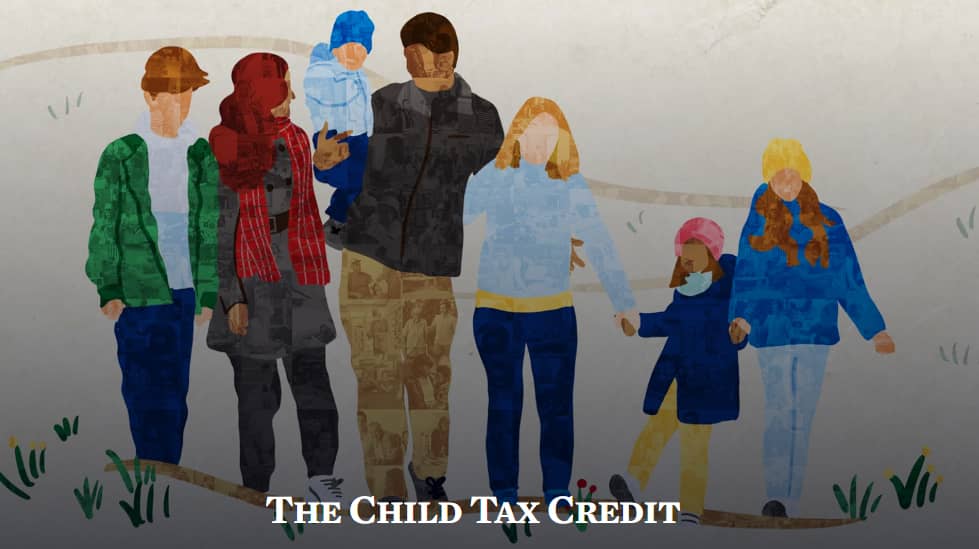Noting that the federal Child Tax Credit is a “powerful tool to help fight childhood poverty” in Michigan, Gov. Gretchen Whitmer is urging parents across the state to file a federal income tax return if they haven’t already done so, or to us a Non-Filer Sign-Up Tool to gain eligibility for lucrative child tax credit payments.
Reminding everyone that the American Rescue Plan Act of 2021 has increased the federal Child Tax Credit to $3,600 per year for children under 6 years old and $3,000 per year for children 6–17 years old, the governor issued her appeal this morning, noting that the tax credit will be issued as a monthly payment and will not count as additional income that could affect your family’s eligibility for public assistance.
Gov. Whitmer says, “The federal Child Tax Credit is a powerful tool to help us fight childhood poverty,” and adds, “This is a game-changing investment that will uplift kids and families in Michigan and across the United States and is another example of how we are making a real difference in people’s lives right now. The first step to receive the credit is to file a federal tax return for 2020 or sign up using the Non-Filer Sign Up Tool. Unlike the earlier Child Tax Credit, parents may be eligible to receive the advance payments even if they have not previously filed taxes and have low or no earnings.”
The governor says, “We are asking community groups, non-profits, religious associations and education organizations to share this critical information about the federal Child Tax Credit with parents,” adding, “We have a real opportunity to make a difference in children’s welfare here in Michigan.”
Fifth District Congressman Dan Kildee, a member of the U.S House Ways and Means Committee, says, “Thanks to the American Rescue Plan, help is on the way for Michigan families with children through the expansion of the Child Tax Credit,” and adds, “If you work full time, you should not have to struggle with paying bills or putting food on the table for your kids. The expansion of the Child Tax Credit will bring much-needed economic relief to Michiganders and help cut child poverty in half.”
Families meeting the guidelines will receive an Internal Revenue Service-issued check or direct deposit on July 15th, August 13th, September 15th, October 15th, November 15th, and December 15th.
The new maximum credit is available to taxpayers with a modified Adjusted Gross Income (AGI) of:
- $75,000 or less for singles
- $112,500 or less for a single parent, also called (head of household)
- $150,000 or less for married couples filing a joint return and qualified widows and widowers
For most people, the fastest and easiest way to file a federal tax return is by using the Free File system, available only on http://IRS.gov.
Taxpayers who file both a federal and a state return may be eligible for state tax credits, including the Home Heating Credit, the Homestead Property Tax Credit and the Earned Income Tax Credit.
Low-income families with children are eligible for this crucial tax relief – including those who have not made enough money to be required to file taxes. If a couple makes under $24,800, a head of household makes under $18,650, or a single filer makes under $12,400, and they have not filed their taxes, the Non-filer Sign-up Tool can be used to sign up for the federal Child Tax Credit.
State Treasurer Rachael Eubanks reports, “The Non-filer Sign-up Tool is designed for those individuals who don’t normally file a tax return, such as families experiencing homelessness, the rural poor, and other under-served groups,” and concludes, “It provides an opportunity for all eligible families to obtain the federal Child Tax Credit.”
The IRS has started sending letters to more than 36 million American families who may be eligible based on information they included in either their 2019 or 2020 federal income tax return, or who used the Non-Filers tool on IRS.gov last year to register for an Economic Impact Payment. Families who are eligible for advance Child Tax Credit payments will receive a second, personalized letter listing an estimate of their monthly payment.
Poverty Solutions Faculty Director H. Luke Shaefer, who is the Hermann and Amalie Kohn Professor of Social Justice and Social Policy and associate dean for research and policy engagement at U-M’s Gerald R. Ford School of Public Policy, tells us, “The American Rescue Plan is the boldest vision for fighting child poverty in the U.S. in at least 50 years,” and adds, “Research shows if we can intervene while kids are young, it’s going to pay dividends in terms of higher academic performance, lower engagement with the criminal justice system, and higher earnings over a lifetime.”
Recent estimates from Columbia University’s poverty center find that this expanded Child Tax Credit will reduce child poverty by 45-percent overall, by 52-percent among Black children, by 62-percent among Native American children, and effectively eliminate the most extreme forms of child poverty in America.
You can find more information at http://www.childtaxcredit.gov.
You can also click these resources for more:






